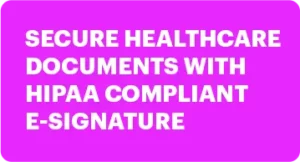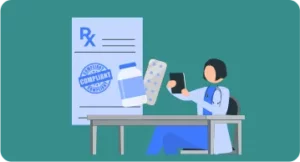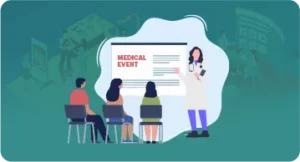5 Ways to Protect Sensitive Healthcare Data
Data security remains a key issue in almost every industry. The reason being companies don’t understand that data security goes beyond compliance. According to the Department of Health and Human Services, “privacy addresses the use and disclosure of individuals’ health information” and security “establish[es] a national set of security standards for protecting certain health information that is held or transferred in electronic form.” In simple words, privacy is concerned with the patient’s health information and security is concerned with the data confidentiality. Both terms are distinct but work hand in hand to enhance patient care.
How sensitive data remains safe?
Sensitive information remains safe if certain privacy and security measures are taken on time. When the security of sensitive data like healthcare data is at stake, it requires a great deal of attention. The 5 ways explained in this blog are meant to protect sensitive healthcare data that will in turn help healthcare providers in serving excellent patient care. Let’s discuss them one by one:
1. HIPAA Compliance and Security Rules
HIPAA (Health Insurance Portability and Accountability Act) Compliance define the working principles of healthcare providers in the U.S. whereas other regulations like GDPR (General Data Protection Regulation) define how global operations should be undertaken in order to remain in compliance. So, it is quintessential that the healthcare providers and business associates are well versed with the latest requirements and choose vendors and business associates accordingly.
Two key components of HIPAA compliance:
- The HIPAA Security Rule – The Security Rule sets guidelines and standards for handling personal health information based on administrative, physical, and technical levels
- The HIPAA Privacy Rule – In order to safeguard the privacy of personal health information, the Privacy Rule limits the use of information and its disclosure to third parties without prior patient authorization.
2. Restrict Access to Data and Applications
Implementing access controls gives instant protection to healthcare data. Access control restricts the access to the information or applications to only authorized users. This way healthcare providers can perform their jobs without any fear of data threat. In order to enable access restrictions, one can set access controls and additionally apply multi-factor authentication, one of the best and recommended approaches. Each and every user has to validate that they are authorized to access the information and applications using two or more validation methods.
3. Conduct Regular Risk Assessment
Like audit trail helps to identify and track changes in the document, regular risk assessment helps in identifying the vulnerabilities or loopholes in a healthcare organization’s security systems. It also helps in identifying the shortcomings in the security posture of vendors and business associates. If risk assessment is carried out periodically, one can proactively identify and mitigate potential risks that might result in costly data breaches, reputation damage and penalties from regulatory agencies.
4. Data encryption – Both in Transit and at Rest
Encrypting data is again one of the most useful approaches to protect data and secure healthcare organizations. It is essential to encrypt data both in transit and at rest as it will ideally make it impossible for attackers to decrypt the patient information, no matter if they have access to the data or not. HIPAA compliance offers recommendations to encrypt the data but doesn’t mandate healthcare organizations to implement it. For encryption, the HIPAA rule leaves it up to healthcare providers and business associates to choose the type of encryption methods they want to put in use and what other measures they want to take, that cope up with the organization’s workflow and other needs.
5. Partner with Compliant Solution Providers
In order to facilitate best healthcare services, many healthcare providers are incorporating digital methods. As a result of this the demand for digital solution providers is raised. But with increasing data breaches, a careful evaluation of these solution providers is one of the most crucial security measures healthcare organizations need to take. The HIPAA Omnibus Rule has nourished the previous guidelines and given clear definitions to enhance confidentiality and security in data sharing with business partners.
MSB Docs smart document solutions is a compliant solution provider that offers more than 5 ways stated above to protect sensitive healthcare data and let healthcare organizations go digital. Get in touch with our experts if you wish to know more.
Request a Demo








